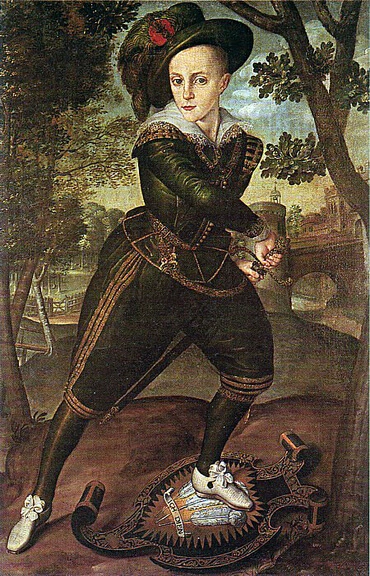1
And it came to pass at that time, that Judah went down from his brethren, and turned in to a man of Adullam whose name was Hirah.
2
And Judah saw there the daughter of a Canaanitish man whose name was Shua; and he took her, and went in to her.
3
And she conceived and bore a son; and he called his name Er.
4
And she again conceived and bore a son, and she called his name Onan.
5
And again she bore a son, and she called his name Shelah; and he was at Chezib when she bore him.
6
And Judah took a wife for Er his firstborn, and her name was Tamar.
7
And Er, Judah's firstborn, was wicked in the sight of Jehovah, and Jehovah slew him.
8
Then Judah said to Onan, Go in to thy brother's wife, and fulfil to her the brother-in-law's duty, and raise up seed to thy brother.
9
But when Onan knew that the seed should not be his own, it came to pass when he went in to his brother's wife, that he spilled [it] on the ground, in order to give no seed to his brother.
10
And the thing which he did was evil in the sight of Jehovah, and he slew him also.
11
And Judah said to Tamar his daughter-in-law, Remain a widow in thy father's house, until Shelah my son is grown; for he said, Lest he die also, as his brethren. And Tamar went and remained in her father's house.
12
And as the days were multiplied, Judah's wife, the daughter of Shua, died. And Judah was comforted, and he went up to his sheep-shearers, to Timnah, he and his friend Hirah the Adullamite.
13
And it was told Tamar, saying, Behold thy father-in-law is going up to Timnah to shear his sheep.
14
And she put the garments of her widowhood off from her, and covered herself with a veil, and wrapped herself, and sat in the entry of Enaim, which is on the way to Timnah; for she saw that Shelah was grown, and she was not given to him as wife.
15
And Judah saw her, and took her for a harlot; because she had covered her face.
16
And he turned aside to her by the way, and said, Come, I pray thee, let me go in to thee; for he did not know that she was his daughter-in-law. And she said, What wilt thou give me, that thou mayest Come in to me?
17
And he said, I will send [thee] a kid of the goats from the flock. And she said, Wilt thou give [me] a pledge, until thou send it?
18
And he said, What pledge shall I give thee? And she said, Thy signet, and thy lace, and thy staff which is in thy hand. And he gave [it] her, and went in to her; and she conceived by him.
19
And she arose and went away; and she laid by her veil from her, and put on the garments of her widowhood.
20
And Judah sent the kid of the goats by the hand of his friend the Adullamite, to receive the pledge from the woman's hand; but he found her not.
21
And he asked the men of her place, saying, Where is the prostitute that was at Enaim, by the way-side? And they said, There was no prostitute here.
22
And he returned to Judah, and said, I have not found her; and also the men of the place said, No prostitute has been here.
23
Then Judah said, Let her take [it] for herself, lest we be put to shame. Behold, I sent this kid, and thou hast not found her.
24
And it came to pass about three months after, that it was told Judah, saying, Tamar thy daughter-in-law has committed fornication, and behold, she is also with child by fornication. And Judah said, Bring her forth, that she may be burned.
25
When she was brought forth, she sent to her father-in-law, saying, By the man to whom these [belong] am I with child; and she said, Acknowledge, I pray thee, whose are this signet, and this lace, and this staff.
26
And Judah acknowledged [them], and said, She is more righteous than I, because I have not given her to Shelah my son. And he knew her again no more.
27
And it came to pass at the time of her delivery, that behold, twins were in her womb.
28
And it came to pass when she brought forth, that one stretched out [his] hand, and the midwife took it and bound round his hand a scarlet thread, saying, This came out first.
29
And it came to pass as he drew back his hand, that behold, his brother came out; and she said, How hast thou broken forth! on thee be the breach! And they called his name Pherez.
30
And afterwards came out his brother, round whose hand was the scarlet thread; and they called his name Zerah.







